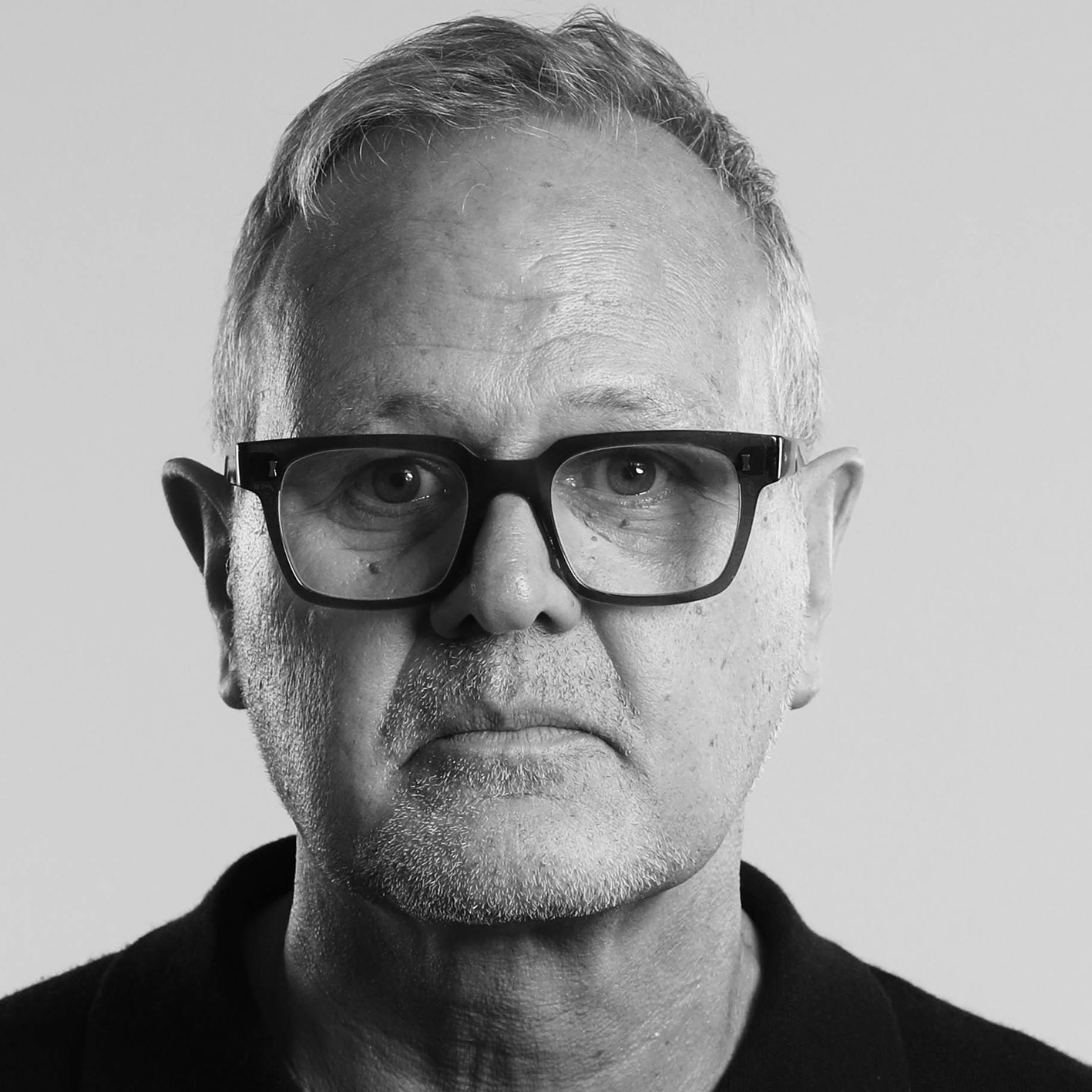Photograph by Antonio Olmos/The Observer
To understand Tony Bloom’s business model at Brighton you could focus on just one position: the No 6, or defensive midfielder. If that sounds reductionist, read on.
In the “holding” role, Bloom’s club bought Yves Bissouma for about £15m and sold him for £35m. They bought Moisés Caicedo for £4.5m and sold him for a British record £115m. The replacement’s replacement, 21-year-old Carlos Baleba, was bought for £26m and is now on Manchester United’s wishlist. Baleba’s value has climbed to Caicedo-levels. Brighton, though, have no wish to sell him.
When The Observer suggests, at Bloom’s business HQ, Starlizard in London, that whoever is crunching data on No 6s deserves a pay rise, he laughs first and then concedes that scouting young central midfield stars is a club specialism. “It is, and let’s not forget Alexis [Mac Allister] and Pascal [Gross], who were playing a lot of games as a DM [defensive midfielder] as well. So that could be five of our best ever players in the football club.”
These trading gains, deriving from Bloom’s fabled (and well-guarded) recruitment algorithm, are a source of fascination across world football. Clubs poach Brighton coaches and analysts in the mistaken hope that they hold the code to “Tony’s algorithm”. They don’t. Only a tiny number have seen it. And succession planning is built into Brighton’s thinking. Bissouma, Caicedo and Baleba were all lined up in advance for the No 6 job.
Up against nation states and American private equity, many might say Bloom is the smartest guy in the room. He has taken a club who almost dropped out of the 92-club pyramid in 1997 into the Premier League’s top 10. It’s a highwire act of buying low, selling high, and offering tomorrow’s stars playing time and a chance to develop in Brighton’s first team.
Our analytics have improved, and need to. A lot of clubs are using them and some are very good at it
Our analytics have improved, and need to. A lot of clubs are using them and some are very good at it
Tony Bloom
Starlizard is where Bloom, 55, made his fortune. It is a betting advisory and data laboratory that relentlessly hunts down margins in football markets. Some of those ideas were transferred to Brighton’s recruitment system. “Without that it would be really tough,” Bloom says. “We’ve got superb analytics. And our valuation of players across the world in huge amounts of leagues – that breadth gives us a significant advantage.”
The model isn’t static. It has led the club this year to Greece and South Korea for the first time for Charalampos Kostoulas (18), Stefanos Tzimas (19) – both Greek – and Yoon Do-young, 18 (Korean). “It’s an organic model. It’s improved a lot over the last five or six years,” Bloom says. “And it needs to, because a lot of people at a lot of other clubs are using analytics, and some of them are very bright, and some of them are very good at it.”
Brighton’s sale of João Pedro, who asked to leave, to Chelsea this summer for £60m was double what he cost from Watford only two seasons previously. It added to Chelsea’s outlay of more than £225m in fees and compensation for 11 Brighton players, coaches and staff. Kostoulas (£31.4m) and Tzimas (£20.8m) were already signed by the time Pedro was sold.
Bloom has traced his first interest in gambling to the arcades in Brighton’s West Street when he was “eight or nine”. After those early days of playing around with odds he progressed to become a world-class poker player nicknamed “The Lizard” (hence Starlizard) and the overlord of a betting operation that has been likened to City trading, but through football results and data rather than stocks and shares.
Newsletters
Choose the newsletters you want to receive
View more
For information about how The Observer protects your data, read our Privacy Policy
Much of his wealth has been transferred into a club who are a part lifelong passion and part analytics experiment, subverting norms. He holds stakes in three other clubs – Royale Union Saint-Gilloise (Belgium), Hearts (Scotland) and Melbourne Victory (Australia) – but insists they won’t dilute his focus on Brighton.
“I think it’s about delegation,” he says. “Regarding the four football clubs I have a keen interest in USG, Hearts and Melbourne Victory, but I’m not at all day-to-day involved. I spend no real time outside of following their games and watching what they’re doing. They’ve got strong management teams.”
A 29% stake in Hearts cost him £9.86m and he surprised some in Scotland when saying he would be disappointed if the club didn’t win the league within 10 years. “I was bullish,” he says. “I wanted to excite the staff and fans at Hearts, excite the club to make sure they’ve really got the ambitions where I think they should have them. I wouldn’t say that if I didn’t strongly believe it.
“I have a big belief in what we can do. I love a challenge. And I love football, and certainly when it comes to Scotland, I do feel it’s just been dominated by the big two for 40 years and probably just dominated by Celtic pretty much the last 15 years, and I don’t know if it’s good for Scottish football.”
Bloom spent £200m building Brighton’s Amex Stadium and Lancing training complex and is about to confirm building plans for a new purpose-built stadium for Brighton’s women, currently playing at Crawley. He says: “Having our own stadium for the women, designated for women, for supporters who are quite a different demographic – that will give us a real boost for the team, but certainly also for women’s football generally, for the city, for the community.”
I’m not of the belief that clubs are undervalued. Almost every club loses money
I’m not of the belief that clubs are undervalued. Almost every club loses money
Tony Bloom
You wonder how he processes so much information and makes so many decisions across an empire in every 17-hour working day. Maybe poker taught him how?
“On the poker table the decisions are quicker,” he says. “Occasionally you’re allowed a bit more time, but generally you’re making decisions in 10 or 15 seconds.” Tougher calls, he says, might take 45 seconds to a minute. His strong Brighton connection isn’t spin. I ask him to explain it. “It goes back to my grandad [Harry],” he says. “He was born and raised in London. My dad [Ronnie] was living in London during the Blitz – he was evacuated to Hertford, staying on a farm. At the end of the war my grandad and grandmother decided they needed to leave London, towards the end of the 1940s, and that’s when they moved to Brighton.
“Then the Brighton [and Hove Albion] connection came. But in fact my grandad was involved with Worthing before Brighton. [Uncle] Ray also became chairman of Worthing before he joined Brighton. So it was probably more the 1950s and 60s when they started to support Brighton – and then my grandad got on the board in 1971 and became vice-chairman in 1973.
“I started going from 1976, ’77, and started to pick things up. You don’t understand everything, because I was six or seven, but it was just the atmosphere and the enjoyment, and then as time goes on you come to understand what it all means.”
Crystal Palace, Newcastle and Spurs winning trophies last season after long waits has increased fan pressure on Brighton to land a first major honour. Bloom’s quick answer is characteristically analytical.
“We’re fairly desperate to win a trophy, regardless of last year’s success by other clubs. I’m not saying the Premier League’s impossible to win, but it’s very, very difficult. Top five would be superb if we were to get there, because it would mean a Champions League place. The FA Cup and Carabao Cup are really big tournaments for us.
“So it’s a big priority, but in terms of how we’ve done over the season the league is a much better measure. We’ve had a vision for a long time to be in the top 10. We’ve added to that this summer by saying we want to be in Europe every season as well – which does include winning cups.”
The manager whom Bloom and chief executive Paul Barber appointed at 31, Fabian Hürzeler, is seen by Brighton watchers as the right type to work with the business model, and not agitate against it, as his predecessor Roberto De Zerbi did towards the end.
Again Bloom thinks he has backed a winner. “He’d never coached in any capacity or played in England, let alone the Premier League,” he says. “So he’s a very quick learner. He’s always interested in new information and he listens well. So I have no doubt he would have improved a lot as a head coach [last season] from a high starting point.”
American ownership in the Premier League has reached 50%, so the parting question to Brighton’s home-grown owner is: why, what’s in it for them? “I’m not of the belief that football clubs are undervalued,” he says. “Almost every football club loses money. The one reason, and particularly in American sports, why the values are so high is because of limited supply, and there’s a lot of very rich people in America who want to spend money, they want to buy a sports team.
“And in each of the major sports, it’s around 30 of them. In football in England and most countries, it’s not a closed league, like it is in America. And so it’s different because you can, for not very much money, buy a League One or League Two team in England and invest. [There are] absolutely no guarantees, but you can get to the Premier League.”
Waiting for them there, in opposition, is an owner with a model nobody can crack. It would be easier to just buy Tony Bloom. But unlike João Pedro and many others, he’s not for sale.

